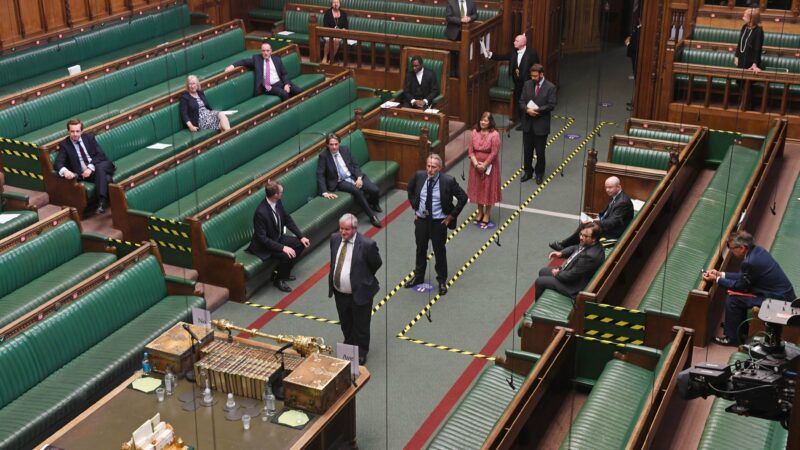
MPs have rejected by an 81-vote majority an amendment to ensure that the most serious charges against military serving personnel, including, rape murder and manslaughter, are heard in civilian rather than military courts.
The Commons this evening considered Lords’ amendments to the armed forces bill. 221 MPs voted in favour of the amendment attempting to move the most serious trials to civilian courts, while 302 voted against.
“This amendment directly addresses the treatment of women in our armed forces, which is rightly receiving public attention, and it is an issue that disproportionately affects women in the lower ranks,” Stephen Kinnock said.
The new Labour shadow defence minister added: “Until there is fairness, transparency and justice in these cases, the actions of a tiny minority will be allowed to tarnish the reputation of our world-class armed forces.”
Tories, including Johnny Mercer – a former army officer who was in charge of legislation on the issue before his recent resigning as a defence minister – and defence committee chair Tobias Ellwood, have also criticised government.
The change to the law was recommended by a review of the service justice system (SJS), led by judge Shaun Lyons, and was backed in July this year by a parliamentary inquiry into the protection of women in the armed forces.
The 2017 review recommended that “the court martial jurisdiction should no longer include murder, manslaughter and rape when these offences are committed in the UK, except when the consent of the attorney general is given”.
The investigation by Lyons followed concerns that victim-blaming, fears that a complaint will damage careers and perceptions that military requirements are prioritised over the needs of rape complainants by the armed force.
The government later rejected the recommendation of a defence sub-committee that military courts should no longer try the most serious cases, and that women had been “denied justice” by the “woefully inadequate” process, earlier this year.
Conservative chair of the sub-committee Sarah Atherton MP said at the time that it was “disappointing” that the government is not acting on “clear evidence that the current system is failing to deliver justice”.
“Will the minister take this final opportunity to listen to the recommendations of a government-commissioned, judge-led review that expressed surprise that these cases were still being handled by court marshal. Will they listen to the expertise on their own backbenches?” Kinnock asked tonight.
129 rape cases were heard at military courts in the five years up to 2019, according to departmental figures. 13 of the 129 resulted in a conviction – a success rate of just 10%, compared with 50% or more in the criminal courts.
Kinnock highlighted the case of a member of the Royal Navy, whose rape case collapsed in a military court. She backed the amendment rejected by the government today, saying that the change would protect women “from the appalling consequence” of reporting a rape within their unit.
The opposition party announced in March this year that it would attempt to amend the armed forces bill to ensure that rape and other serious offences are investigated and tried through civilian courts when committed in the UK.




More from LabourList
Labour place third in Gorton and Denton by-election as Greens gain seat
‘What Batley and Spen taught me about standing up to divisive politics’
‘Security in the 21st century means more than just defence’